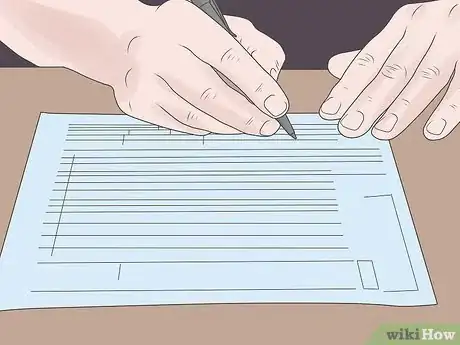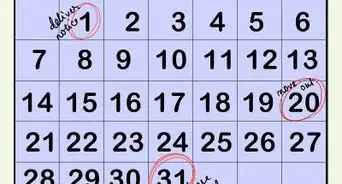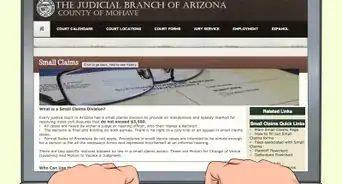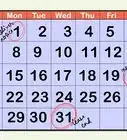This article was co-authored by wikiHow Staff. Our trained team of editors and researchers validate articles for accuracy and comprehensiveness. wikiHow's Content Management Team carefully monitors the work from our editorial staff to ensure that each article is backed by trusted research and meets our high quality standards.
This article has been viewed 62,798 times.
Learn more...
One of the most nerve-wracking aspects of finding a new place to live is getting the landlord to like you and accept your application. It's important to put your best foot forward with a prospective landlord when you first meet them and during the application process to ensure you have the best chances of landing the rental property.
Steps
Making a Good First Impression
-
1Contact the landlord in a respectful manner. When you make first contact with the landlord, you should call or email them and provide your full name, your contact information, and your interest in the property. Be brief and to the point in your phone message or your email. You can also provide a brief description of yourself, like “responsible graduate student looking for a long term rental property” or “young professional with a strong rental history”. The rental market can be highly competitive, so try to contact the landlord as soon as you see the property for rent online or in the Classifieds section of the newspaper.[1]
- If you were referred to the rental property by a friend who lives in the building, and they are in good standing with the landlord, you can also mention them as a referral in your phone message or email.
-
2Prepare a rental resume. Compile all of the necessary documentation for your application so you can simply hand it to the prospective landlord during the rental inspection. This will speed up the application process and make it easier for the landlord to determine if you would be a good fit for the rental property. Your rental resume should include:[2]
- Details of your rental history: This should include your current address and past addresses, as well as contact information for past landlords and the dates you resided at each location. If you cannot locate detailed information for all of your rental history, focus on the last two places you rented or lived in.
- Details of your employment history: This should include contact information for your current employer and your past employer, including their names, addresses, and phone numbers. You should also include your salary history and the dates of your employment. This will show the landlord that you have a steady income and can afford to pay rent every month.
- At least two references: You should prepare at least two references, one professional reference like your current boss or former landlord, as well as one personal reference, like a family friend or former next-door neighbor. Look for individuals who can boost your application and give you a good recommendation.
- Your credit history and credit score: If possible, you should try to get a copy of your credit history and your current credit score from your bank. This will show your landlord you have a history of good credit and can pay bills on time. If you have a poor credit score, you should prepare a reason or explanation for your poor credit score and be able to provide current employment information that will show you can pay rent on time every month.
Advertisement -
3Dress professionally for the rental inspection. Make the best first impression when you meet the prospective landlord by dressing professionally and looking presentable. This doesn’t necessarily mean a suit and tie but you should put some care into your appearance. Avoid sweats, slippers, or uncombed hair. A clean shirt, jeans, and a clean appearance will show you put effort into looking presentable for the landlord.[3]
- If your potential roommate is coming with you on the rental inspection, ensure they are also dressed professionally and are presentable for the first meeting with the landlord.
-
4Be on time for the rental inspection. Try to be a bit early and wait outside of the rental property for the landlord with a big smile. This will make a good first impression and the landlord will likely remember that you made the effort to be on time.[4]
Being Professional During the Application Process
-
1Be upfront about any pets or past rental issues. Do not try to hide your cat or dog from the landlord, as failing to tell the landlord about pets after the fact could be a breach of your lease. If you have a pet, check if the rental listing says “pets allowed” or “small pets only”. You can then suggest a pet interview during the rental inspection, where the landlord has an opportunity to meet your pet and assess your pet’s behavior and demeanor. This will allow the landlord to get a sense of the pet and prevent them from just moving on to another tenant who has no pets.[5]
- Similarly, if you have had rental issues with past landlords, be upfront about the reasons for these issues. The prospective landlord will likely contact at least one past landlord on your rental resume, so prepare them by being honest about why you and your landlord had a dispute. This will give you the opportunity to be proactive about past issues and provide your side of the story.
-
2Communicate your strong interest in the rental property. During the rental inspection, you should be clear about your desire to rent the property so the landlord understands you are a serious contender. Show your enthusiasm for the space by commenting on how nice a certain room is or how you have been searching for a place in this specific area or location. Complement the property and comment on how well it is kept. The landlord will pick up on your comments and you will give off a clear impression that you are serious about your interest.[6]
- During the rental inspection, you should also make an effort to be charming and engaging. Ask the landlord about the history of the building or the past renters and engage in light conversation. Show that you are interested in what the landlord has to say and be friendly towards them. This will make a memorable impression on the landlord and they may be swayed to consider you as a potential tenant.
-
3Be clear about why you would be a good tenant. Put your best foot forward by highlighting the reasons why you would be a good tenant, such as your steady income, your stellar rental history, or your high credit score. Focus on the elements of your rental resume that show you are good with money and reliable in terms of meeting deadlines or due dates.[7]
- Most landlords want a tenant who will treat the property with respect and care, and who will pay rent on time. Highlight your ability to do both things by mentioning past experiences that show you will be a responsible and trustworthy tenant.
Community Q&A
-
QuestionHow do I write up a rental application?
 Naji BoutrosCommunity AnswerIf the landlord does not have an application form for you to fill out, go online and simply run a search on the internet to find one. The requested information is pretty standard throughout the country. Fill the application out as completely as possible and send it to the landlord.
Naji BoutrosCommunity AnswerIf the landlord does not have an application form for you to fill out, go online and simply run a search on the internet to find one. The requested information is pretty standard throughout the country. Fill the application out as completely as possible and send it to the landlord.
References
- ↑ http://www.zillow.com/blog/6-ways-to-make-the-landlord-pick-you-98033/
- ↑ http://www.rehonors.com/renter-resources.php
- ↑ http://www.realestate.com.au/blog/7-ways-win-over-a-landlord/
- ↑ http://www.realestate.com.au/blog/7-ways-win-over-a-landlord/
- ↑ http://www.zillow.com/blog/6-ways-to-make-the-landlord-pick-you-98033/
- ↑ http://www.realestate.com.au/blog/7-ways-win-over-a-landlord/
- ↑ http://www.realestate.com.au/blog/7-ways-win-over-a-landlord/































































